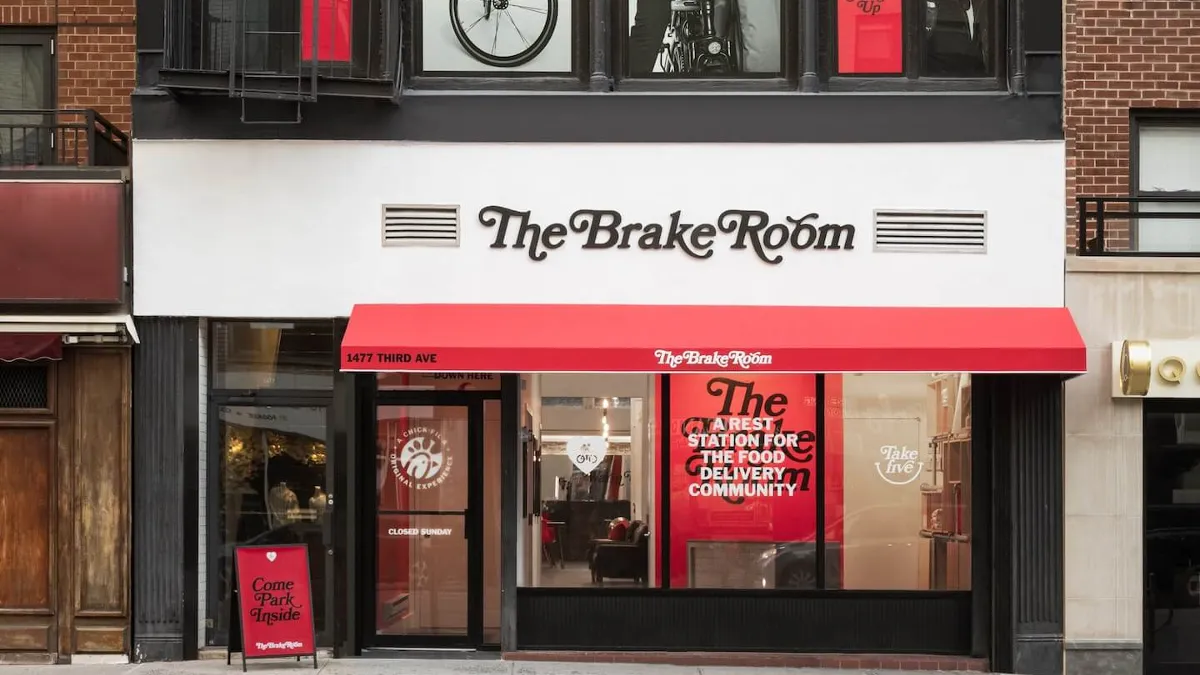Dive Brief:
- Chick-fil-A, alongside its New York City restaurant operators, opened The Brake Room Thursday in the Upper East Side of Manhattan as a limited-time space offering a moment of respite for food delivery workers, the company said Wednesday.
- The free space will be open to delivery workers who can prove they’ve delivered food in the past week via an eligible third-party app.
- Chick-fil-A said food delivery has a key component of its restaurant sales, with the winter months of 2022 seeing the highest number of deliveries from its Manhattan locations.
Dive Insight:
Chick-fil-A has been innovating around food delivery, opening delivery-only kitchens, expanding its virtual brands and testing autonomous delivery, but this appears to be the first time it has opened a space exclusively for delivery workers. The Brake Room will offer couriers access to bathrooms, bike storage, phone charger outlets, seating, Wi-Fi and beverages. The space at 1477 Third Ave. will be open through April 13 from 11 a.m. to 7 p.m., Monday through Saturday.
“In metro areas like New York City, we see the same food delivery workers come through nearly every day of the week, several times a day, and how taking an extra second to warm-up between deliveries or offering a glass of water helps to fuel them on for their shift,” said Jared Caldwell, a Chick-fil-A restaurant owner/operator in New York City.
With over 65,000 delivery couriers, New York City has become a proving ground for the food delivery segment and a site of confrontation between workers, app businesses and government authorities. Delivery workers in New York City have self-organized groups to fight against dangerous working conditions and to pressure delivery aggregators and restaurants to improve worker treatment. The city has responded to this worker organization with broad efforts to regulate the market. Late last year, New York City proposed increasing hourly delivery wages to $23.82 by 2025.
In 2021, New York City passed a series of delivery worker protection laws, including requiring restaurants to allow couriers to use restrooms, a mandate that food apps allow workers to set a maximum distance per trip that they travel and requiring apps to not charge workers to receive payment of wages and that wages are received at least once per week.












